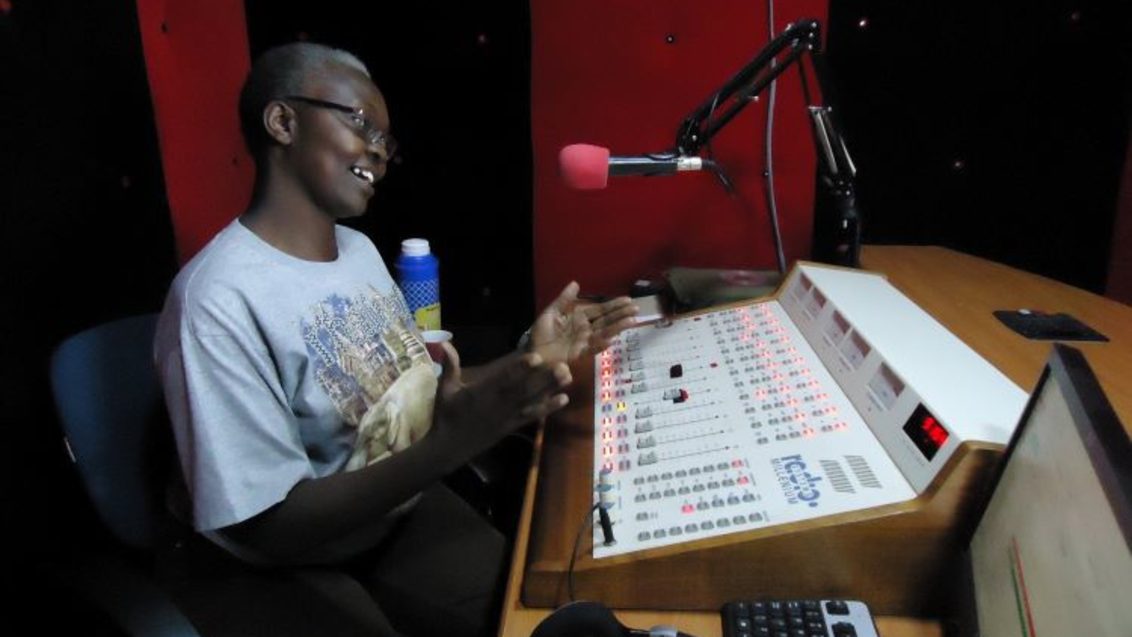Old-school? Radio is covidly hot news!

Radio in local languages greatly increases the reach and effect of agricultural extension. Female farmers are among the key beneficiaries. A year of Covid-19 has also shown how rural radio can overcome hurdles and help cope with pandemics.
Our Foundation (SFSA) began working with Kilimo Media International (KiMI) in 2015. The joint aim was to boost Kenyan agricultural extension via radio. Importantly, the focus was on stations broadcasting in local languages. «There are three good reasons for this», comments Paul Castle from SFSA. «Farmers speaking minority languages are often under-served by conventional extension. But advice in the ‘language of the heart’ is always easier to follow, which means agriculture benefits faster. And thirdly we wanted to give the languages a boost because they brought a professional advantage.»
KiMI trained up two groups of radio stations and guided them through work with their local extension officers. Each of the groups was accompanied for three years. The work benefited farming in Marsabit, Garissa, West Pokot, Samburu, Isiolo, Nyeri, Kitui, Kajiado and Meru, as well as listeners beyond these counties. «Together, we’ve vastly increased the reach of extension services, particularly in remote areas», sums up KiMI head Pamela Mburia. «And we know that farmers adopt the practices discussed on air. This success has only been possible thanks to great support from country Ag departments and hard work by the broadcasters.».
The most recent documentation of this work is now available on our radio extension page. This latest KiMI report covers the period to the end of 2020. «We’re used to challenges. But working with radio stations in the ‘year of Covid’ added a special dimension!», says KiMI’s Toepista Nabusoba, herself a highly experienced radio journalist. (Our photo shows her in the studio of a participating station).
Less mobility, more listeners
As in other countries, radio stations play/ed a very important role in Kenya during the pandemic. However, Covid-19 also made rural broadcasters’ task harder. «The nationwide curfew restricted their movement», Toepista points out. «So it was difficult to interview farmers and other experts in the fields. For very good reasons, most farm programs are aired in the evenings, which is when the curfew starts. So radio stations couldn’t even host experts live, but had to do phone interviews». COVID-19 also led to a drop in advertising revenues, and thus to some staff reductions.
«With all those problems, I really take my hat off to the stations», declares Pamela Mburia. «They have kept on broadcasting about farming, but also carry lots of messages related to COVID-19 . They work hard on prevention, de-stigmatization and rumor-busting in a range of languages.» At a time when extension officers are even more limited in their physical travel than usual, radio reaches communities that would otherwise be cut off from advice both on farming and health. «No other medium can compete with radio in rural Kenya», Paul Castle adds. «It is easily accessible, requires neither internet, reading skills nor expensive equipment, and it reaches men and women equally. Perhaps not surprisingly, Kenyan radio listenership greatly increased in 2020!»
As the KiMI report shows, radio’s accessibility to women is a key feature of our initiative. «Women are known worldwide for listening better than men», Toepista Nabusoba laughs. «But in connection with agricultural extension, they certainly listen differently.» Listener Groups are a hallmark of KiMI’s work. They bring farmers together after a broadcast to discuss its contents and decide on action. Wherever possible, the extension officer takes part, sometimes replaying the program. He or she then answers questions from the group.
«Most Listener Groups are entirely or largely female», Pamela Mburia knows. «Women often prefer the all-female solution. They say it gives them independence and they can make their own decisions.» Discussing the programs has led many listeners to farming improvements or into whole new lines of business, such as chicken-rearing. «However, the radio stations also need to bear women’s special needs in mind earlier in the process», Pamela adds. «Even before Covid, hosting female experts on live shows was a challenge, because many were reluctant to travel to stations in the evening.» KiMI encourages producers to contact women during the day and play recordings of their views during the programs. Evening airing is also important, because then women have time to sit and listen in.
The second group of radios has now completed the three-year KiMI program. Experience from the first group suggests that most of them will continue to broadcast agricultural advice, and will continue to gain both income and audience numbers as a result. SFSA is now examining a possible new engagement in radio work in a related area. Our webpage contains extensive documentation on the last six years’ work, as well as background information on radio extension.
